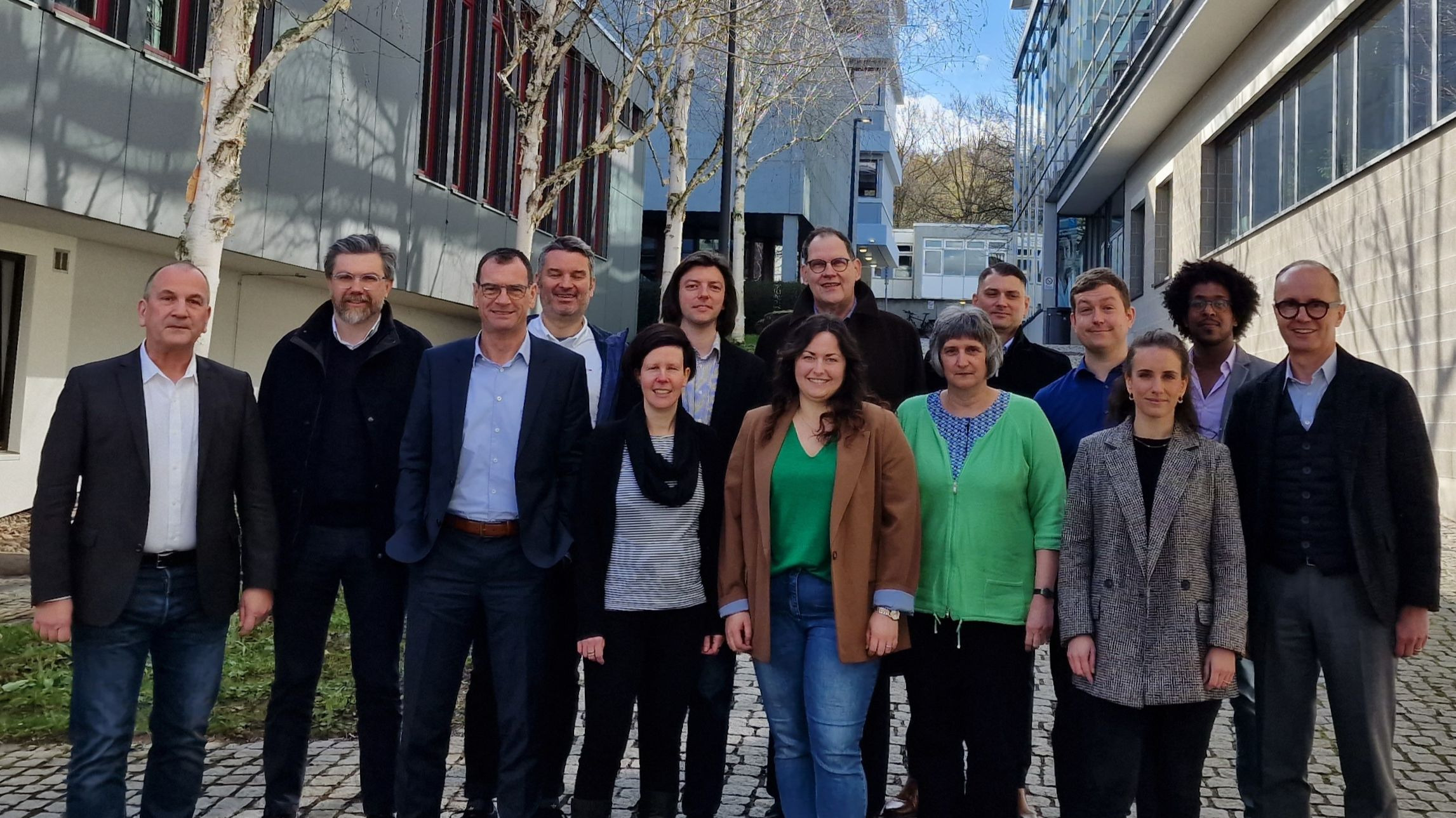ReDiBlock Research Project Successfully Develops Blockchain-based Prototype for Circular Economy
(28.03.2023) The ReDiBlock research project, which involves KIT AIFB, KIT Thinktank, INEC, and ipoint-systems GmbH, has successfully developed a prototype application supporting circular economy using Blockchain technology. The project's use case is focused on gold recycling, with two industry partners, C. Hafner and egf, providing valuable insights and help in refining the concept behind the prototype. The internal project closing meeting, hosted by INEC at Pforzheim University, was attended by the project partners and marked the successful completion of the project.

The ReDiBlock project team consisting of KIT AIFB, KIT Thinktank, INEC and ipoint-systems GmbH with representatives of the associated industrial partners C. Hafner and egf as well as other interested parties from Pforzheim University. Prof. Dr. Ali Sunyaev and Mikael Beyene were present for AIFB.
Pforzheim, Germany – The ReDiBlock research project, which aims to support circular economy using Blockchain technology, has announced the successful development of a prototype application for gold recycling. The project is a collaborative effort between research organizations KIT AIFB, KIT Thinktank, INEC, and the company ipoint-systems GmbH.
The ReDiBlock research project was initiated in October, 2020, to address the challenges of resource management in a circular economy. By leveraging Blockchain technology, the project aims to create a decentralized, transparent, and secure network that enables the tracking and traceability of materials and products throughout their lifecycle. The use case for the project focused on gold recycling, with two industry partners from the city Pforzheim, C. Hafner and egf, providing valuable insights and expertise in the gold recycling branch.
The project's prototype application was successfully developed and tested with the help of C. Hafner and egf. The application enables the tracking of recycled gold from the point of collection to its use in new products. The project partners are confident that the prototype will serve as a proof of concept in helping reduce the environmental impact of gold mining and provide a more sustainable approach to gold production and similar contexts.
To mark the successful completion of the project an internal project closing meeting was held at Pforzheim University, hosted by INEC. The meeting was attended by the project partners, who expressed their satisfaction with the results and engaged in lively discussion. The internal project closing meeting will be followed by a public meeting including representatives of the Ministry of the Environment, Climate Protection and the Energy Sector Baden-Württemberg and the project executing organization PTKA (Projektträger Karlsruhe).
